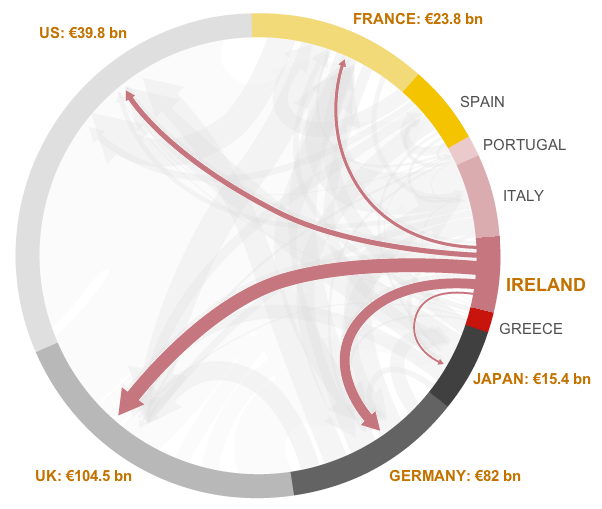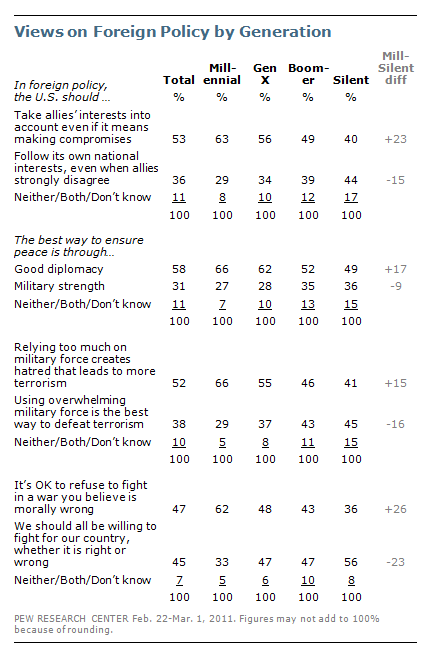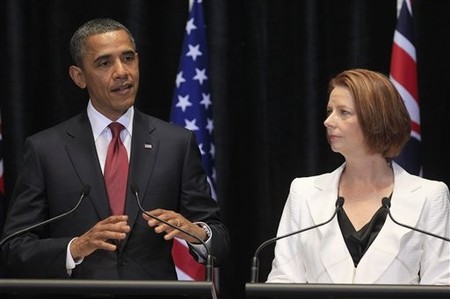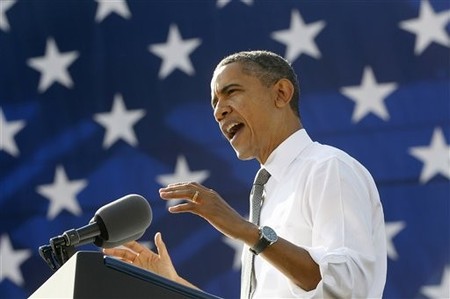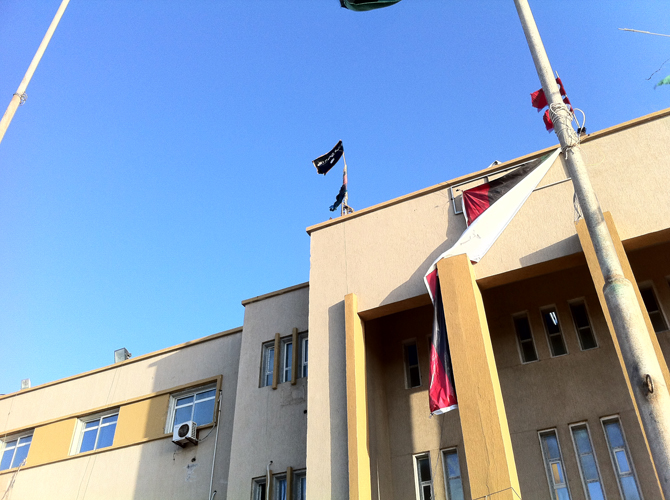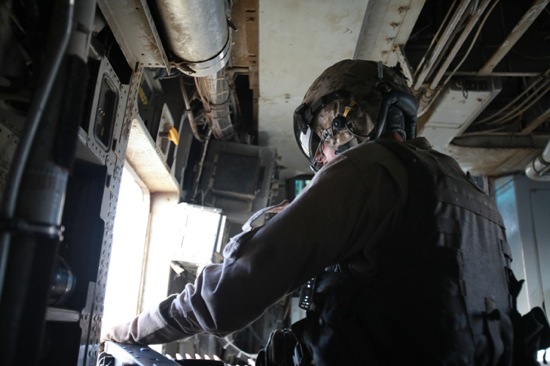
Sgt Maj. Steven Lunsford mans the .50-caliber machine gun on a CH-53E Super Stallion during a recent mission in the Afghan sky. Lunsford is the sergeant major of Marine Heavy Helicopter Squadron 464.
-- Photo by Cpl. Brian Adam Jones
By Brian Adam Jones
Boarding a CH-53E Super Stallion at Camp Bastion, Afghanistan, recently, I thought a member of the helicopter’s crew looked familiar.
For a recent project I was working in the Helmand River valley, I flew on a Super Stallion from Camp Bastion, a major aviation port in Afghanistan, to a small landing zone attached to a patrol base.
As one of the first passengers on the aircraft at Camp Bastion, I attentively watched a Marine in a flight suit as he attended to cargo being loaded onto the massive aircraft.
Crew chiefs or aerial observers aid with the operations of the helicopter, manning .50-caliber machine guns and managing passengers and cargo. This post is frequently stood by young, junior Marines and noncommissioned officers, but from what I could see of him from under the visor on his helmet, this Marine was older, and I knew him from somewhere.
He was Sgt. Maj. Steven Lunsford, the sergeant major of Marine Heavy Helicopter Squadron 464, and I’d worked with him a few times before. A squadron’s sergeant major serves as its senior enlisted Marine and advises the commanding officer. Sergeant major is the top enlisted rank in the Marine Corps.
As a combat journalist with 2nd Marine Aircraft Wing (Forward) I had gone out to the squadron a few times to write stories on the Marines or facilitate interviews with their hometown newspapers. I had always had a great impression of the lanky sergeant major with a screaming flat top and a Kentucky drawl.
On one occasion, I saw him address the noncommissioned officers in his squadron, jumping onto a cargo box and reassuring them, “Don’t worry, if I fall, my catlike reflexes will kick in.”
As I sat in the aircraft’s canvas seat, watching him ratchet cargo down and man the machine gun, I thought of what a fantastic demonstration of leadership this must be for his Marines. According to his biography, he never served with an aviation unit before checking in with Marine Heavy Helicopter Squadron 464 in 2010, 21 years into his Marine Corps career.
Flying on missions with his Marines sends the right message to them, and also gives him firsthand understanding of what they go through.
A Marine once told me that the best relationships you build in this gun club are with the Marines you sweat alongside, the ones you did pushups in the sand with in boot camp. It is in that spirit that I encountered Sgt. Maj. Steven Lunsford in the Afghan sky that day.
As always, I appreciate feedback. I hope you all stay posted as I chronicle my experiences as an enlisted Marine in Afghanistan over the next several weeks.

Super Stallion with Marine Heavy Helicopter Squadron 464 departs from a landing zone in Helmand province, Afghanistan, with Sgt Maj. Steven Lunsford as a part of the crew.
-- Photos by Cpl. Brian Adam Jones
Cpl. Jones' first entry - My Path to Afghanistan
Cpl. Jones' second entry - A Glimpse at the Future of Afghanistan
To contact me with feedback or questions, email me at brian.adam.jones@gmail.com. To learn more about the 2nd Marine Aircraft Wing (Forward), visit the Facebook page.

The views, opinions, positions or strategies expressed by the author are his alone, and do not necessarily reflect the Department of Defense or United States Marine Corps.

